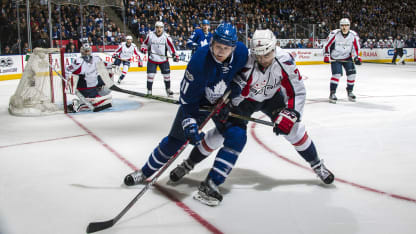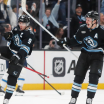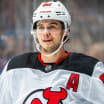The Washington Capitals offense gets a lot of attention, but the Toronto Maple Leafs may be their equal when it comes to scoring. The real story is the Capitals highly underrated defensive play; Washington goaltenders Braden Holtby and Philipp Grubauer won the William M. Jennings Trophy by allowing the fewest goals (170, plus seven empty-net goals) during the regular season.
According to the numbers, the Maple Leafs will have to rely on center Auston Matthews and their other rookies to jump to an early lead, because their chances of an upset will dwindle with every passing moment they trail an opponent that plays excellent shutdown defense.
Capitals vs. Maple Leafs key statistics
Toronto can match Washington's offense, not its defense

© Mark Blinch/Getty Images

















